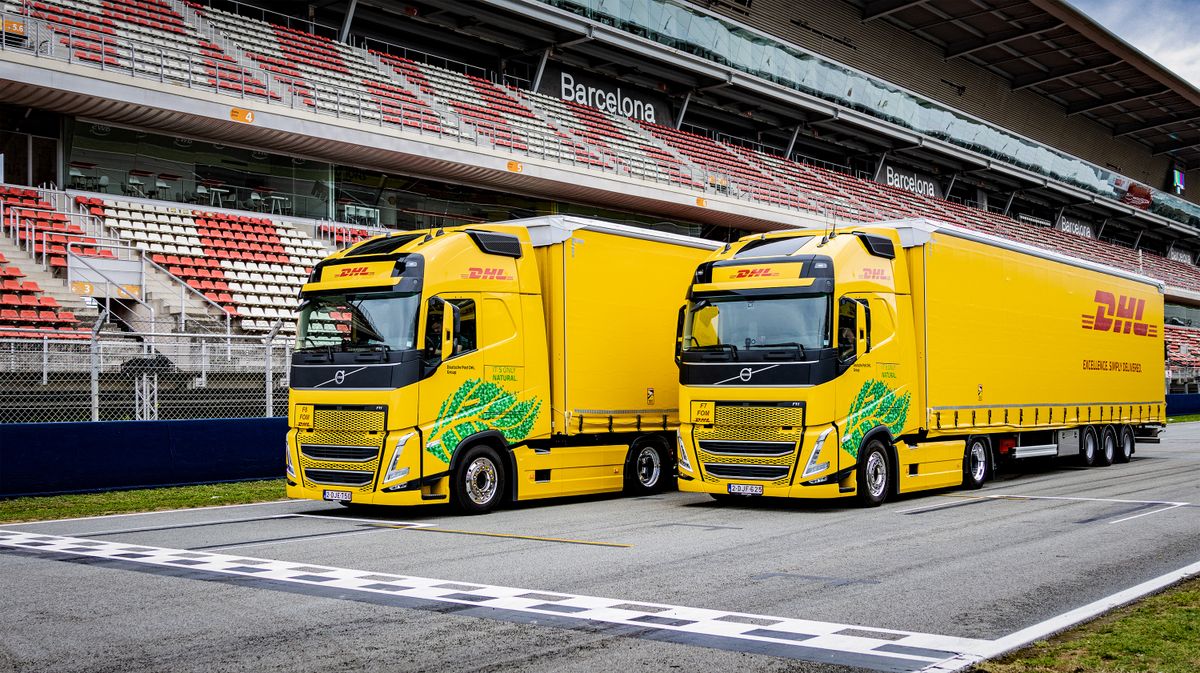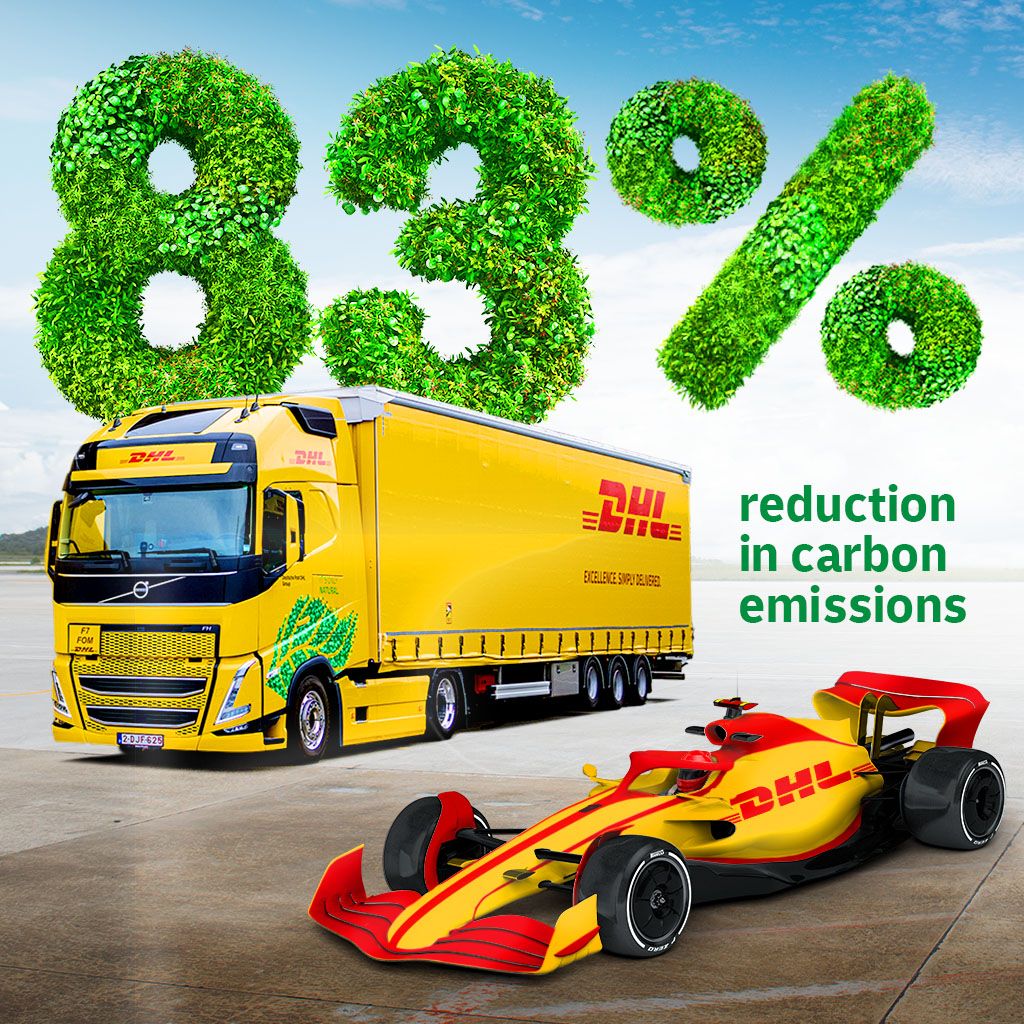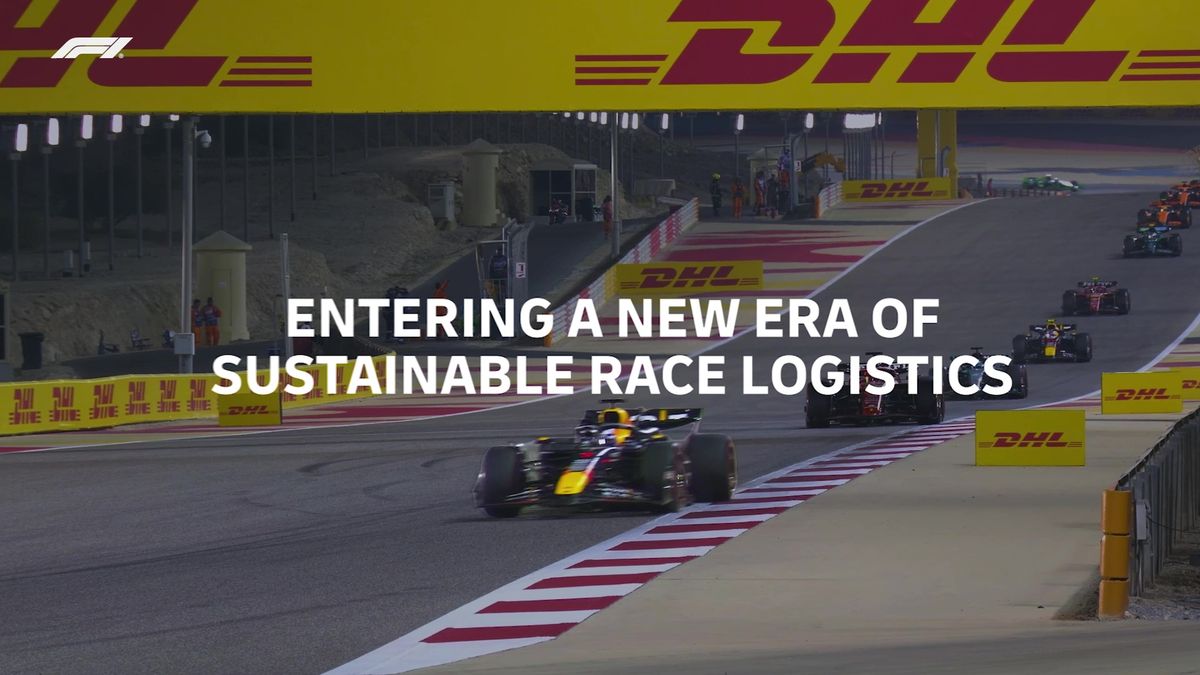
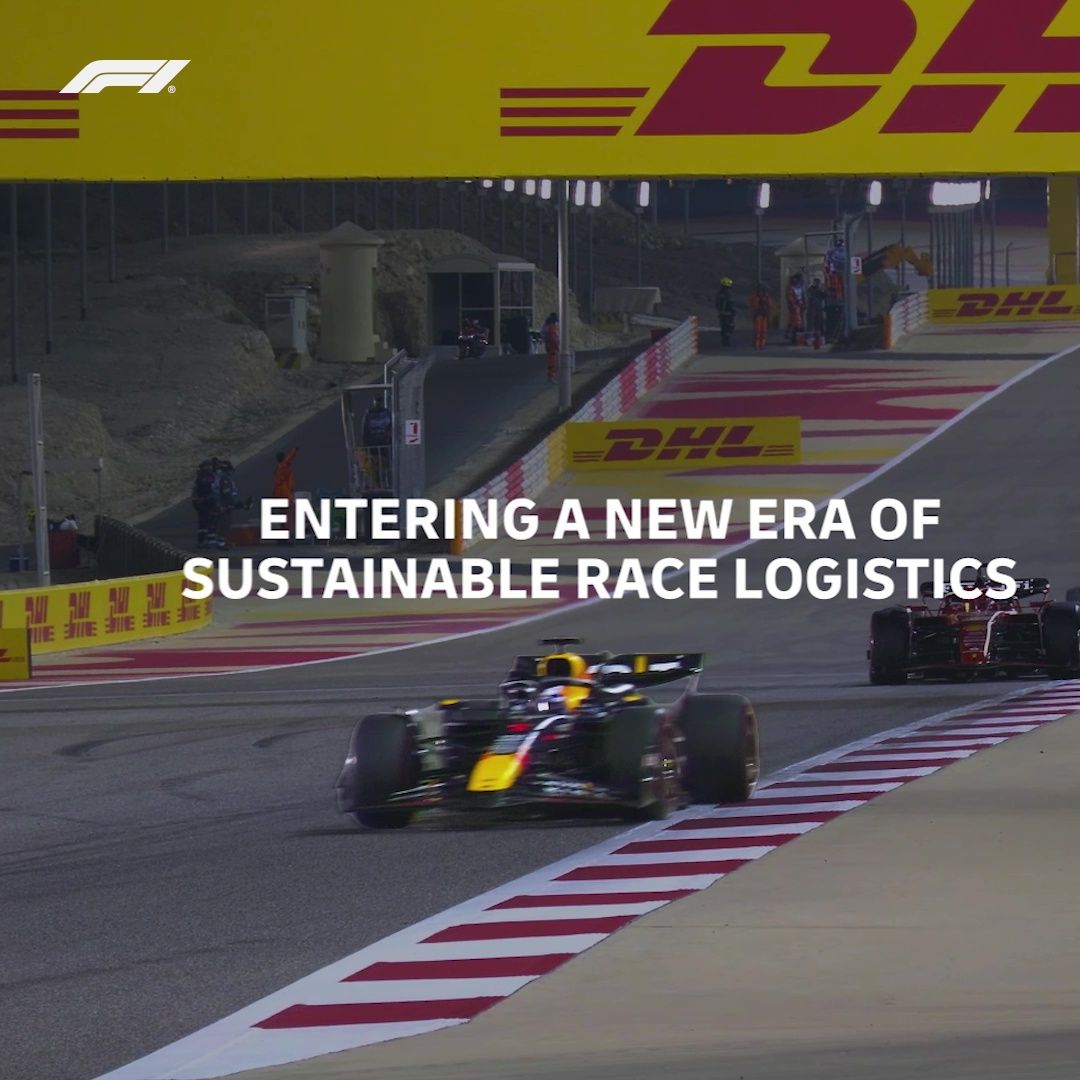
The Race to Carbon Net Zero
Fueling Formula 1
In 2024, DHL significantly advanced its commitment to sustainable transport practices in Formula 1® by doubling its fleet of biofueled trucks, from 18 to 37.
Formula 1 also made significant investments in Sustainable Aviation Fuel (SAF) as part of its ultra-efficient logistics strategy in 2024. DHL’s GoGreen Plus service was a key driver in helping Formula 1 reduce total related emissions by more than 8,000 tCO2e (tonnes of carbon dioxide equivalent), an approximate 19% reduction in related emissions – compared to traditional aviation fuel – for the air freight charter programme operated by Formula 1 across the flyaway events of the 2024 season.
These initiatives align with the broader goal of Formula 1® on its Net Zero Carbon by 2030 commitment, showcasing DHL's proactive role in driving forward greener logistical solutions.
Sustainable fuel impacts road & air freight
Our biofueled trucks deliver the European Formula 1® races, running on HVO100 drop-in fuel. By doing so, our biofuel-powered trucks will have reduced carbon emissions by 83% on average when compared to their diesel-driven counterparts.
The pilot of SAF for F1® delivered an estimated 80% reduction in associated carbon emissions* per flight compared to the use of conventional aviation fuel.
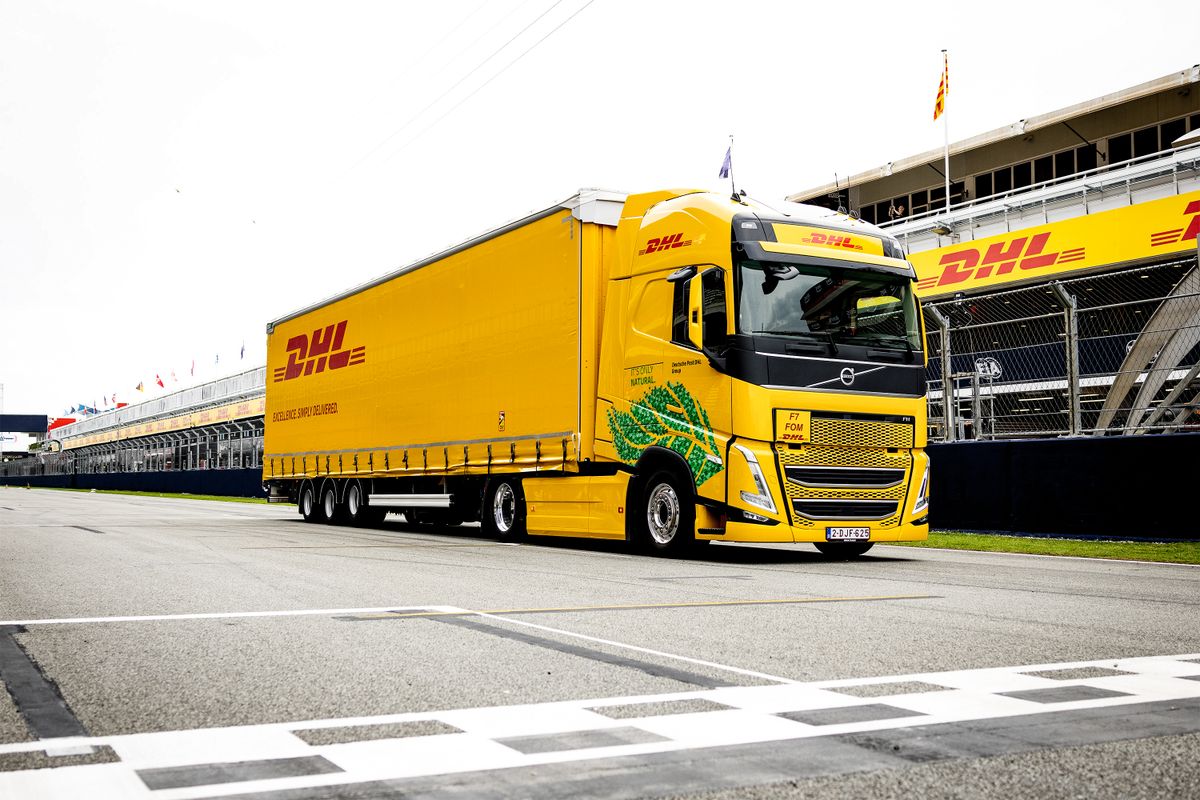
What is biofuel and how is it made?
Biofuels are liquid fuels produced from renewable biological sources, including plants and algae. Biofuels offer a solution to one of the challenges of solar, wind, and other alternative energy sources.
DHL uses HVO100 drop-in fuel for running the biofueled trucks. Hydrotreated Vegetable Oil (HVO) is made from renewable bio-based feedstock, which is obtained from wasted oils and fats residues, for example, used cooking oil.
What are Sustainable Aviation Fuels?
Sustainable Aviation Fuel (SAF) represents a significant step towards aviation with lower greenhouse gas emissions and is produced from a huge range of renewable sources including agricultural biomass and used cooking oil.
The SAF for Formula 1 logistics is purchased and transferred through the value chain via a book and claim system. This system allows for the decoupling of specific environmental attributes from physical products, such as reduced greenhouse gas emissions, and transferring them to another party through a registry. Buyers and sellers can participate without direct involvement in the physical supply chain of the fuel. At purchase, buyers “book” a specified quantity of sustainable fuel and “claim” emissions reductions towards their sustainability objectives, acquiring environmental benefits without physically possessing the fuel.
FORMULA 1 ON THE ROAD TO BEING NET-ZERO CARBON BY 2030
- Development of a 100% sustainable fuel for F1® cars in 2026 and beyond. F2 and F3 have run on a 55% version of this since 2023 and F1 Medical Cars currently use a 40% sustainable fuel
- Increasing remote broadcast operations, reducing the amount of freight that travels around the world
- Transitioning to 100% renewable energy in the F1® offices
- Redesigning freight containers that enable more efficient aircraft to be used
- Achievement of the highest Sustainability Management accreditation awarded by the FIA (3* accredited)
- Working closely with Race Promoters to ensure best practice when putting on a sustainable event and leaving a positive legacy
- Partnering with Aggreko, a world-leading provider of temporary power solutions, to deliver innovative low-carbon energy generation systems at all European Grands Prix from the 2025 season
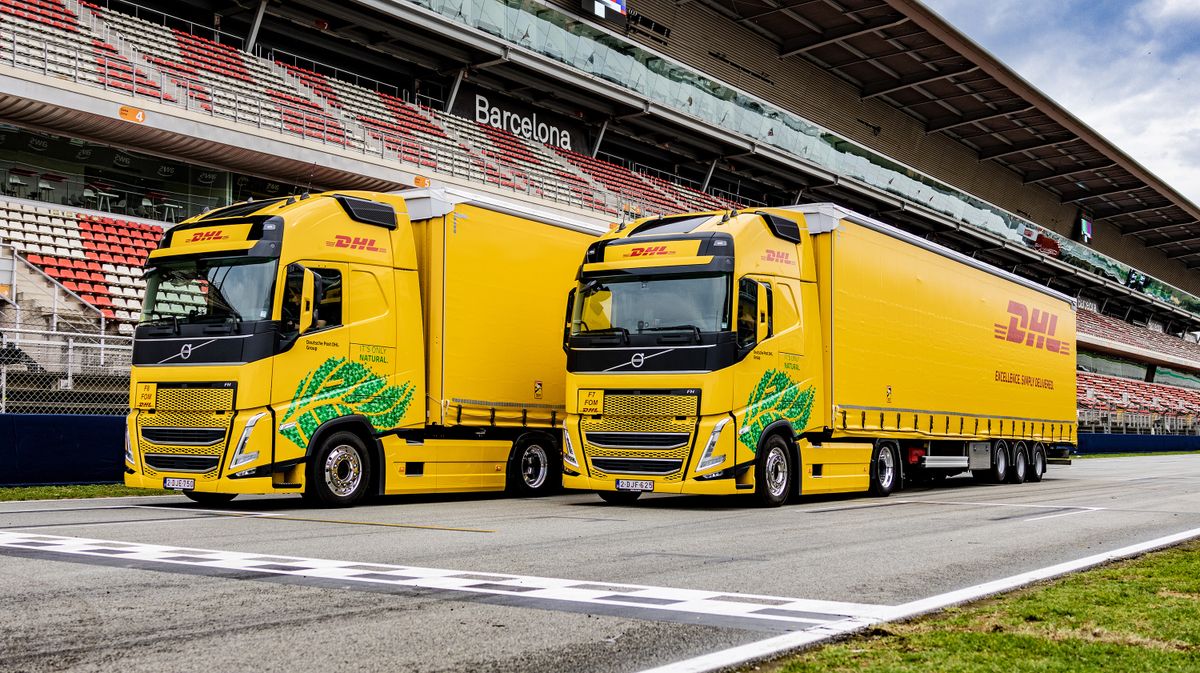
Sustainable fuels on track
Formula 1® is also working to develop a 100% sustainable fuel ahead of 2026, in line with the introduction of the next generation of hybrid engine, which all F1 cars will use from the 2026 season.
The introduction of sustainable fuels for F1 cars will contribute to the sport’s goal of achieving its Net Zero Carbon by 2030 commitment and the fuel will be designed with ‘drop-in’ capabilities for real-world use, with huge potential to decarbonize the wider automotive sector. Watch the video here to find out more.

